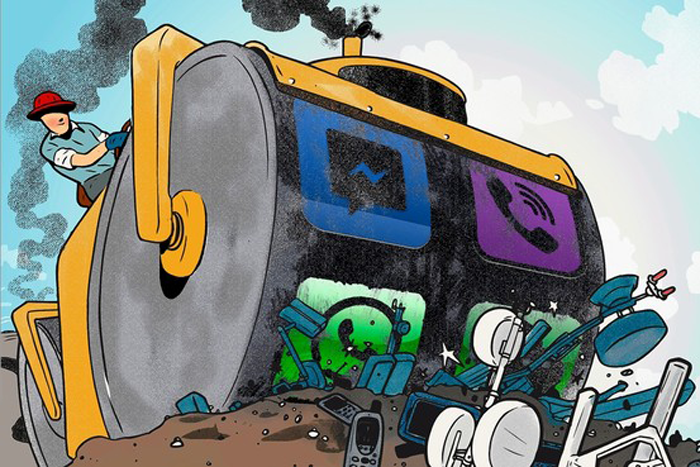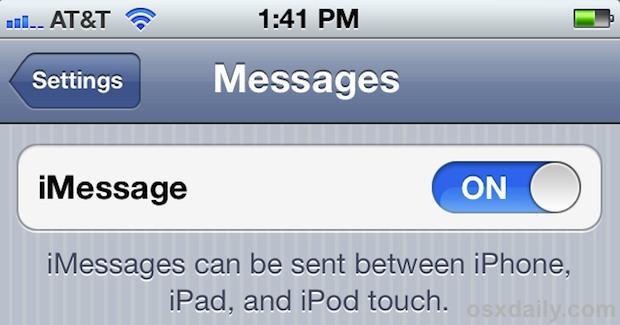
Texting is definitely one of the more iconic communication methods of my generation. I had grown up around adults who were getting cell phones as a means of ringing up one another while away from the landline, but by the time I got my first cell phone most kids my age were primarily using texting. Why? Well, it allowed us to be discreet and sneaky punks without our parents knowing any the wiser. But after a couple of years or so after really becoming a popular form of communication, texting got complicated.
Sometime in 2006, BlackBerry (known then as Research In Motion) released a service for BlackBerry devices called BlackBerry Messenger, otherwise known as BBM. BBM was primarily created to serve as a business solution for professionals to communicate with each other using real-time response, more tools and improved efficiency. BlackBerry Messenger also became iconic in a way that it sort of created a special clique among BlackBerry users to talk to each other without the common issues seen through text messaging. No charge for text messages, no 160-character limit, emoticons and group tools to help organize events and gatherings, professional or not. The biggest drawback to BBM was most notably the fact that you could only use these awesome tools by using RIM (or BlackBerry's) servers; anybody with any device other than a BlackBerry couldn't communicate using BBM.
As popular as BBM was, it wasn't hard to see more people adopting BBM as their main platform. With BlackBerry already being an extremely popular platform at the time without many others to compare, the addition of BBM only helped its popularity grow as more people were seeing benefit beyond the professional world to switch. Honestly, BBM was a pretty solid selling point for BlackBerry until around 2011, when rival company Apple decided to implement a similar concept with iMessage.

iMessage, in my opinion, doesn't compare to the functionality of BBM at all. It's a good feature for communicating in real-time with other people, but it didn't add any real benefit other than that. In fact, I would have to say that to anybody who didn't use multiple iOS platforms, it never made a difference whether you used iMessage or not. It was a simple implementation that had actually caused me more grief than convenience. I liked iMessage initially becuase it was implemented in the SMS application already; all you had to do was flip the switch on and the phone did the rest of the work. Talking to somebody not using iMessage? Regular SMS. Talking to somebody with iMessage? iMessage! It was pretty ingenius, and something that BlackBerry didn't have. The issue with iMessage came when it was time to get rid of the device you were using it on, though. If you forgot to turn off iMessage before you switched to another platform, you're likely to get the silent treatment from your friends who still use iOS. No, they don't hate you for switching to that unspeakable platform (most likely); their phones are just still trying to communicate with you via iMessage. Since you're still signed in on the device, the servers running iMessage assume you're still good to receive the messages. It can be a real nightmare to deal with, especially if your phone was stolen or simply lost.
As more platforms pop up, like Android and Windows Phone, we're confronted with a more difficult situation. BlackBerry was able to get away with BBM when it was released because it was pretty much the only platform that could feature such a function at the time anyway, and the platform was extremely popular. Most of your friends were likely already using BlackBerry, and if they weren't it wasn't too hard to convince them otherwise. But now you have four distinctly different platforms that all have their own designated instant messaging software that they want you to use amongst your fellow same-platform users, and what's worse is that each platform's app store has produced too many alternatives to count. I have friends all over the map right now that use iMessage, BBM, Hangouts, Live Messenger, WhatsApp, TextMe, Kik and Facebook Messenger, and there just comes a point where you start to realize that all of these apps at this point, which are trying to make it easier to communicate with each other, just end up making things more complicated.
I mean, realistically, one of the main selling points of a designated instant messaging app was to be able to save costs on text messaging, but most plans for smartphones include text messaging nowadays anyway. With there being four different major platforms with quite a few instant messaging applications to chose from, both native and third-party, it almost seems like SMS is the easiest way to assure communication these days (unless, of course, iMessage interferes). Even with BlackBerry releasing a BBM app for Android and iOS sometime in the near future, major adoption seems unlikely unless they incorporate SMS integration (not likely). Until some miracle instant messaging app is created that allows me to communicate over WiFi to everybody, I'm just going to stick with SMS. I can deal with delayed responses every once in a while as long as I don't have to deal with the headache that has become instant messaging on mobile devices.
What about you, readers? Do you primarily use instant messaging applications, or do you prefer the ol' SMS? Do you use multiple chat apps to communicate with respective groups? Let us know your thoughts in the comments below!
Images via iMore, Wall Street Journal